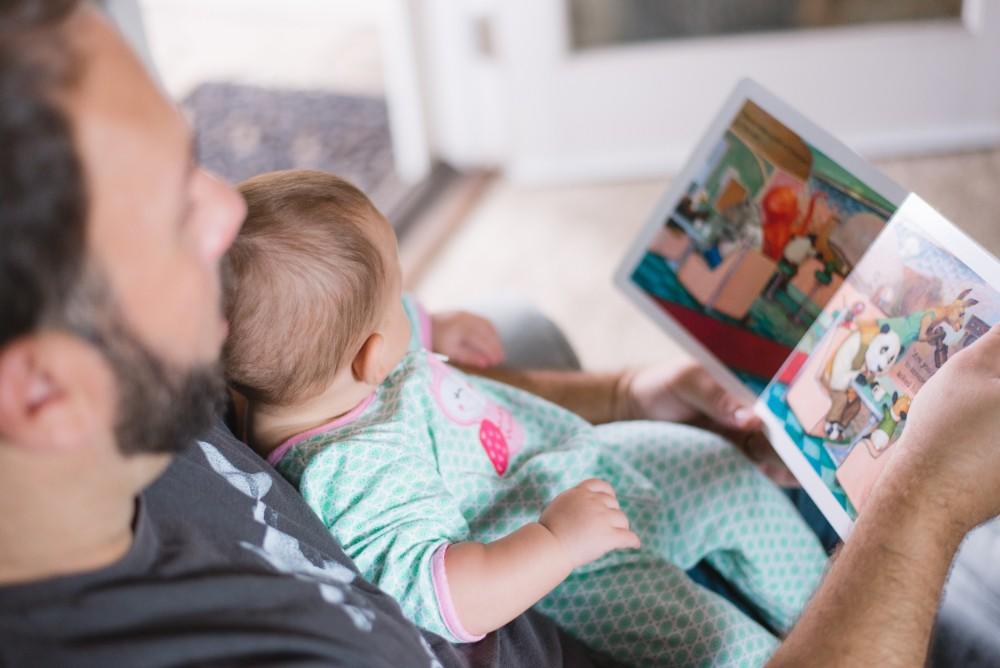Chapters
Home education or homeschooling (blanket terms covering a wide range of non-school-based learning) is currently a hot topic.
There are many reasons why families choose to take their children out of the formal education system; illness, ideology, problems with bullying, special needs, disengagement. Equally, there are many different forms of home education, such as flexi-schooling, de-schooling or unschooling.
It also appears that the numbers of children being homeschooled are on the rise. The Guardian reported in April 2016 that the numbers of home educated primary aged children rose by 60% in the three academic years to 2014/15. For secondary aged children, the number was 37%. Although the actual numbers of children are small (0.5% of the total pupil population) it is an interesting trend.
With the widely reported parental dissatisfaction with SATs tests for year 2 children, there may be even more parents looking at new ways to educate their children.
The idea of going to school to be educated may seem like something that has always existed. If we think about it, it can be hard to think about what we did before mainstream schools were invented. Even the concept of the ‘invention of school’ seems ridiculous. Surely they have always been there, otherwise, where did children go to be taught, where did they receive their education? I doubt the benefits of homeschooling or alternative forms of education would come to mind.
The idea of school is such a stable and ingrained part of our society that we hardly know what we would do if it didn’t exist. But the reality is that mainstream schooling is still a relatively modern concept. Before the second half of the 19th century, the mainstream and compulsory educational system had not been developed, leaving millions of children without access to formal education.
Before the latter half of the 19th century, the vast majority of Children had had access to education in one of 2 ways. The first was via the church which afforded an education heavy in religious study. Children could learn to read and write, with the only textbook being the bible. The second form of education came from home, with families and tutors responsible to educate the children.

About Homeschooling In The UK
Homeschooling, unschooling or home education is the alternative option for children to be taught outside of the traditional mainstream school system. Modern day homeschooling is not so different from that of the historical practice. With learning conducted by the parent, tutor, or with integrated life experiences. The main difference between modern-day homeschooling is that every child can now also experience online tutoring, opening up a world of resources, lesson plans and learning experiences for students and home educators.
Today although parents have the freedom to choose to homeschool their children, this decision can still be met with resistance and judgement. We have forgotten that millions of children before compulsory education became popular in the late 19th century, were taught very successfully at home by their families. The idea of handing the responsibility of educating your children to someone else was not a popular concept.
It is also important to note that homeschool was not saved just for the disadvantaged population who couldn’t afford to attend state schools. The rich also hired tutors and governesses to teach their children at home. The critical reason for studying in this way was for the children to learn to fulfil their full potential in society, not too dissimilar to today. Homeschooling is not a new option for educating children, but it is an important one.
While there are many who do not agree with the idea of home education, it may still come as a surprise to hear that it is actually illegal to homeschool in many European countries. The UK, compared to many other countries, still has very few regulations when it comes to compulsory education.
Many homeschooled children receive tutoring from professional tutors (a number of tutors near me on The Tutor Pages describe some of their current students as being homeschooled) and online tuition often now plays an integral part in the learning of home educated students.
As the numbers of home educated children increase, we may see governments attempt to impose greater control in an area that previously they have preferred to quietly ignore. It depends on which side of the debate you fall as to whether you think this would be a good or bad thing for education in the UK.
Find other primary school tutoring on Superprof.

Homeschooling Pros And Cons
There are pros and cons to homeschooling your children. Some of the disadvantages are that it is not an ‘easy’ option, it takes a lot of time, dedication, patience and creativity. It is also a full-time job so one parent would have to give up working to focus on providing education. This also means that the household income would lower, while the cost to provide education may rise.
Granted there are a few cons to consider before deciding if we want to homeschool our children but if you are prepared to accept the challenge you will find that the benefits far outweigh the problems. The success of your homeschooling education system means you have a high likelihood of being left with independent, confident children who know what they want in life and have been nurtured so that they have the skills to achieve it.
Find more primary school tutoring here on Superprof.

Benefits Of A Home Education
-
Personalised Flexible Learning
An excellent benefit of homeschooling is that you can personally create the program of your homeschool. You can decide what to teach your child and how to teach them. Perhaps you will follow a formal plan in line with the school system, Or maybe you will create your own program based on what you feel is best for your child.
However, you choose to teach your child it is important to remember that you don’t have to stick to one kind of program. You are free to create the program that will bring the best out of your individual child. Try to create a flexible schedule that both you and the child will enjoy.
-
Avoid Most Of The Common Colds And Viruses
Another bonus of homeschool is that your child is not going to get every bug, cold or flu that goes around. They will be able to remain relatively healthy and well while in the homeschool environment. Further, if they do get sick, they can still study as they would be at home anyway.
Your child is unlikely to pretend to be sick so that they can stay home either. Since at home they have to study and continue their set learning schedule.
-
Integrating Learning Into Your Natural Environment
Teaching your children at home has the massive benefit of preparing them to see things with new eyes. You can incorporate education into everything that you do. A walk in the park can become a science project to learn about the trees or grass. A neighbourhood tour could turn into a history lesson or a lesson about design and architecture. Even cooking the family meal can become a home economics class.
Learning and education are not just contained within random school subjects. Every moment brings a new opportunity to learn something new opening your child's mind to this will make them a stronger and more curious student.
What are the differences between home learning and online learning?

-
Freedom To Follow The Child's Natural Interests
A huge benefit of homeschooling is that as a parent teaching your child, you will have the opportunity to monitor the child and learn their interests. You will be able to see where they blossom and where they struggle.
This gives you the option of integrating their interests and using that as a propellor to retain the engagement of the child and accelerate their learning. For example, if they love cars, then you can use this interest to create a school curriculum which will focus on teaching teach history, maths, geography etc.
This flexibility is a crucial strength of homeschooling, and it is essential to retain this flexibility in the learning of the child. Allowing them to co-create their own educational program via their natural talents and interests and introducing lessons on a variety of topics.
-
Instil Self-confidence
Moving away from an authoritarian way of teaching and allowing your children to express themselves. While taking an active part in their own learning will validate your child, helping them to feel confident and empowered. Responsibility and trust are central motivators for self-confidence, and these are easy to instil in the homeschool environment.
-
Wider Learning Experiences
While teaching your child the world is your oyster, you can go out to museums to see what you are learning about, or arrange visits to an office to understand how to apply mathematics into the real world. You could even take a year off and go to travel the world and learn about history, languages and culture on the way.
Home schooling does not mean you have to be confined to your home. Homeschooling does not require a set physical location to be successful. This freedom allows you to explore and discover new ways to engage, teach and excite your child about the world around them.
-
Application Of Learning Into Everyday Life
From cooking to paying the household bills, to budgeting, and dealing with challenges. The list is endless, but a key strength of homeschool learning is the way that children can learn to apply what they are learning to real life and with this relevance. Learning takes on a whole new meaning, going from arbitrary pieces of information to fundamental skills to survive successfully in the future.
Allowing your child to take part in and experience of most forms of adult life will enable them to use this learning as preparation for their own futures.
-
Freedom From Peer Pressure And Bullying
A significant challenge in public school today is safety and security, but when teaching your child at home. You don’t have to be concerned about the harmful effects of peer pressure, the devastatingly violent effects of bullying or the life-threatening impacts of in-school violence.
Your child will be 100% assured a safe and secure environment to learn and focus on growing up into a happy, confident individual.

Can I Teach Myself For A Level?
A topic that seems to come up more and more on education super-discussion board The Student Room is that of home education in sixth form. Students are interested in home education for many different reasons; a feeling of lack of support in school, problems with bullying, disagreements with teachers or simply that the subjects they want are not being offered.
The three main questions asked are usually:
Am I legally allowed to teach myself at home?
Yes – as long as your parent or guardian agrees, you have a legal right to be homeschooled. The local authority need to be notified, however, if you are leaving school. Make sure you understand the extent of the task, and are able to acquire the necessary text books. Consider engaging the services of a private tutor, either regularly or as and when necessary.
How can I enter for exams if I’m not in school?
Some schools will accept outside candidates, but you will probably end up sitting your exams as a private candidate at an exam centre. You will need to pay for each exam. The exam board AQA has a page answering questions on this subject.
Will I still be able apply to university?
Yes – you will apply through UCAS in the usual way. The ‘school/college’ question can be filled out in the way that you feel best suits your situation, but your personal statement should detail your home education experience. Having the motivation and drive to self-study is a big plus point, and students need not feel they have to hide the fact they have been studying outside a school setting. You will, however, need to consider who would be able to act as an impartial referee to comment on your academic ability, character and extra-curricular activities. This person cannot be a member of your family, but other possible referees could be a private tutor, religious leader or employer.
3 Quick Tips To Successful Home Schooling
- Don’t try to fit too much into one day, you will become tired and burnt out quickly.
- Join homeschool support groups and organise regular field trips and outings with other homeschoolers.
- Use multimedia technology and the internet, there are lots of things such as languages which could be best taught by an expert. Plus there are free curriculums, lesson plans, worksheets, and other homeschooling resources.
Mainstream schooling is still the popular option when it comes to educating children. But it doesn’t have to be, with the dramatic rise of in-school bullying, in-school violence, the questionable educational system, and the less than promising economic climate. How does mainstream schooling compare to homeschooling?
Homeschooling has become not just a secondary option. But a key consideration in keeping children safe while preparing them for a successful future in which they can thrive as happy members of society.
Now discover this step by step guide to home schooling your learners...











